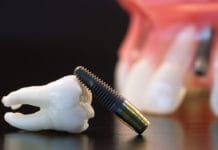Ask any experienced health-care professional what his or her goals are as clinicians, and the response will likely be something along the lines of placing patients first or doing what is best for those who need it. Regardless of the type of clinician, being able to guide an individual to health in any capacity requires the caregiver to retain the ability to remain strong.
What happens when those charged with caring for the health of others become the ones who need care? What can be done to prevent mental fatigue and encourage a healthy mindset, even during the most cumbersome of days?
Understanding Burnout
P. Singh, et al. discussed burnout related to those whose profession encompassed “people-work of some kind.3” According to the authors, burnout can lead to increased emotional exhaustion, negative or cynical feelings, and reduced levels of personal accomplishment. Although this study was conducted with physicians who dealt with a more broad spectrum of medical scenarios, it was noted that these symptoms could just as easily be applied to dental professionals due to the similarity in stress-contributing factors and demands of constant personal engagement with co-workers and “patient involvement.”3
The World Health Organization also defined burnout as a phenomenon that results as a reaction to repeated stress and manifests as loss of energy, increased desire to take a mental break from co-workers, feelings of negativity, and loss of productivity and/or efficiency in the workplace.4 Factors such as long hours, repetitive stressful situations, and conflict among co-workers can culminate in feelings of burnout, majorly reducing an individual’s ability to perform to their maximum potential and, more importantly, pose a risk to patient safety through increased risk of medical error.2 Exercising empathy with our patients and engaging in conversation about their life issues, both positive and negative lends to “compassion fatigue,”1 which over time creates an alteration to our perception of our surroundings.
Causes of Burnout
Feeling burnt out can result from multiple factors and is not always linked to work-related feelings:5
Work-related:
- Feeling of a lack of control about work
- Lack of recognition or reward for hard work, particularly relating to patient care.
- Uncooperative or combative patients will wear out the most experienced provider
- Unclear or overly demanding job expectations
- Feeling bored with work
- Working in a high-tempo or chaotic environment
Lifestyle-related causes:
- Lack of time set aside for socializing or relaxing
- Lack of supportive relationships
- Too many responsibilities with lack of support from others
- Lack of sleep
Personality traits contributing to burnout:
- Tendency to focus too much on perfection; the feeling that nothing is good enough
- Negative view of self and surroundings
- Need to be in control; difficulty delegating tasks to others
- High-achieving, Type-A personality
How Burnout Occurs
Our bodies are built with specific reactions to stress, both positive and negative, called fight or flight.6 The heart rate rises, and the mind prepares the body to respond to factors triggering stress.7 These reactions are meant to be short-lived, however, and they require a great amount of energy.
For those experiencing compassion fatigue, the fight or flight state has remained for an extended period of time, resulting in the prevention of the brain’s ability to exhibit healthy thought processes.
In addition to feelings of exhaustion, perceptions of distance from friends and loved ones begin to develop, and communication fades. Central nervous system exhaustion develops, raising the risk of heart attack as a result of chronic burnout and stimulus, and the heart experiences strain due to extended periods of elevated function.7 Over time, symptoms compound; sleep quality, immune system function, and digestion are all reduced in efficacy, and finally, emotional strain will result from the body’s inability to function properly.7
Recognizing negative reactions to stress is one of the most important keys to ensuring that a negative cycle of coping is avoided. Habits such as self-medicating, illegal drug use, alcohol abuse, and pushing away loved ones can foster continued unhealthy lifestyle choices that end up causing even more stress and frustration.
Preventing Burnout: Keys to Resilience
How can chronic stress be managed in a healthy way? Northwestern Medicine discusses the importance of maintaining a routine in order to combat stress and anxiety that results when the brain is unable to perceive some form of control.8 Soon, sleep becomes steadier, and health and energy levels improve.
Two separate interviews conducted with over 200 physicians sought to reveal strategies used most often to help prevent or manage burnout and foster continued resilience:1
- Focusing on certain thought processes such as placing value on the role performed, self-reminders to maintain interest in the profession, and remaining self-aware
- Accepting personal limitations and understanding that they do not define the individual
- Prioritizing tasks and setting time aside for mental breaks or hobbies
- Utilizing the support of those around us by maintaining open communication
- Approaching challenging patient situations as opportunities for personal and professional growth
- Keeping clear boundaries with patients and co-workers
- Revamp nutrient intake.7 Consider the body as a machine. With burnout, the body has become overrun and low on fuel. In order to recover, vital nutrients and hydration must be replaced in order to allow the body to recover.
Of importance to note is the availability of countless organizations aimed at helping with strategies such as those outlined above. Seeking help and accepting when help is needed is just as important as actively practicing self-help activities.
The unfortunate reality is that seeking out mental health services remains a difficult subject for many due to fear of shame or reprisal, or due to the fear of implications on our careers. But it is important to remember that failure to seek help increases the chance of making unintended errors that can negatively impact both personal and professional aspects of life.
The takeaway of understanding feelings of being overwhelmed and burnt out is knowing that trying to ignore these feelings and working as if they will go away will only cause the feelings to become worse, increasing in frequency and severity, and risking the possibility of making irrational decisions with lifelong implications. Turning to those close to us, utilizing resources, and taking active steps to improve mental health can help to simplify emotions and prioritize factors that seem overwhelmingly complicated or impossible to manage.
Before you leave, check out the Today’s RDH self-study CE courses. All courses are peer-reviewed and non-sponsored to focus solely on high-quality education. Click here now.
Listen to the Today’s RDH Dental Hygiene Podcast Below:
References
- Gopalkumar, R., Pier, K., Costales, T. A Call for Action: Cultivating Resilience in Healthcare Providers. The American Journal of Psychiatry. 2017; 12(4): 3-5. Retrieved from https://ajp.psychiatryonline.org/doi/full/10.1176/appi.ajp-rj.2017.120402.
- Thomas, R.P. Burnout in United States Healthcare Professionals: A Narrative Review. Cureus. 2018; 10(12): e3681. DOI: 10.7759/cureus.3681.
- Singh, P., Aulak, D.S., Mangat, S.S., Aulak, M.S. Systematic Review: Factors Contributing to Burnout in Dentistry. Occupational Medicine. 2016; 66(1): 27-31. Retrieved from https://academic.oup.com/occmed/article/66/1/27/2750599.
- Burn-out An “Occupational Phenomenon:” International Classification of Diseases. Retrieved from https://www.who.int/mental_health/evidence/burn-out/en/.
- Smith, M., Segal, J., Robinson, L. Burnout Prevention and Treatment. 2019. Retrieved from https://www.helpguide.org/articles/stress/burnout-prevention-and-recovery.htm.
- Dietz, J. A Group Approach to Fostering Resilience in Healthcare Providers. 2019. Retrieved from https://www.vituity.com/blog/a-group-approach-to-fostering-resilience-in-healthcare-providers/.
- Dobberstein, L.J. Stress Induced Burnout: The Path Back to Happiness. 2018. Retrieved from https://www.wellnessresources.com/news/stress-induced-burnout-the-path-back-to-happiness.
- Northwestern Medicine. N.D. Health Benefits of Having a Routine. Retrieved from https://www.nm.org/healthbeat/healthy-tips/health-benefits-of-having-a-routine














